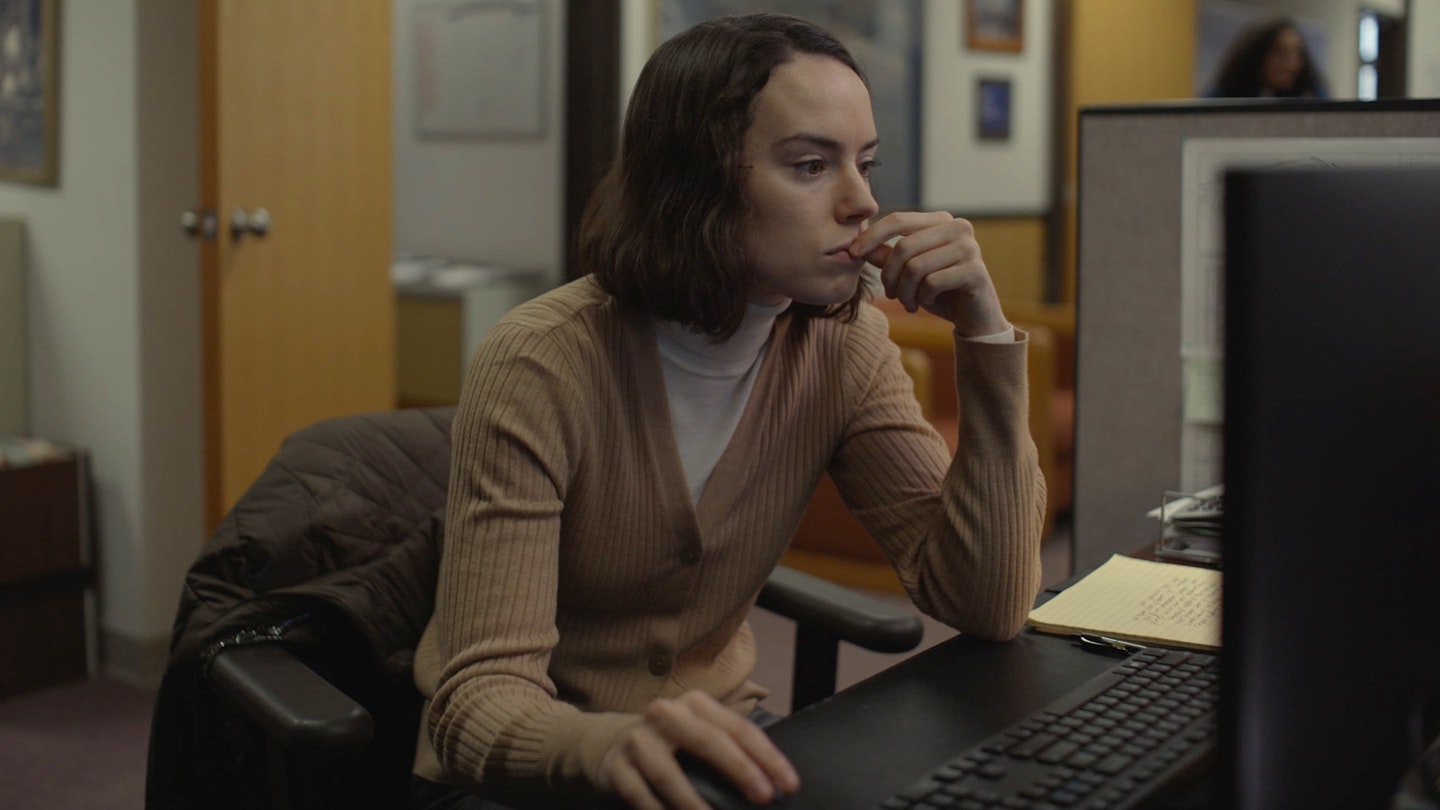It can be difficult, when making a film about a depressed, disconnected character, not to make a depressing film that is hard to connect with. Happily, Rachel Lambert’s indie centres around a really effective Daisy Ridley performance, hinting at just enough inner light to keep you watching even when things get a bit gloomy.

Ridley plays Fran, an office worker in a coastal Oregon town who takes pride in her faculty with spreadsheets. She keeps herself at a remove from her co-workers, barely speaking in the office and floating around her home like a ghost. The closely observed office scenes — the struggle of thinking of a heartfelt message for a colleague’s leaving card, enduring ice-breaking exercises at a meeting — stand in contrast to the dreaminess of Fran’s visions of death. As the title promises, she daydreams about her end.
The finale focuses in on Daisy Ridley’s remarkable performance, to its benefit
When new guy Robert (Dave Merheje) joins the office, Fran makes him laugh, and it seems to inspire her to dare a little human interaction — which visibly does not come naturally. What follows is a tentative courtship, almost too delicately played to be visible. But the result is an odd film: while Lambert clearly means to suggest that Fran has retreated from the world deep into one of her own, there’s little sign that her inner life is a particularly warm or welcoming one. Her visions of death are strikingly shot but lonesome; this is not someone who dreams of being vindicated of some great wrong or perishing in an act of heroism. Neither does she engage with art, or the (stunning) scenery of her seaside home, or really do any of the things you might expect a lonely person to take joy and comfort from. She’s sort of a beige-clad blank.
The fact that both her daydreams and her reality are desaturated and blue-washed also means that this has none of the visual contrast of a Walter Mitty or a Chicago; these daydreams sneak into everyday life unannounced and are, at times, barely distinguishable from what one might term ‘real life’.
Lambert deserves some praise for not going the cod-psychology route of providing some pat answer for Fran’s disconnection, nor for suddenly abandoning subtlety to build to a huge finish. The finale, instead, focuses in on Ridley’s remarkable performance, to its benefit. There are some lovely moments from her colleagues too, particularly Marcia DeBonis as the ready-to-retire Carol, and a real sense of place. That said, it is possible to be too subtle on the big screen, and sometimes the film’s very restraint makes it seem as closed-off and forbidding as Fran herself.

